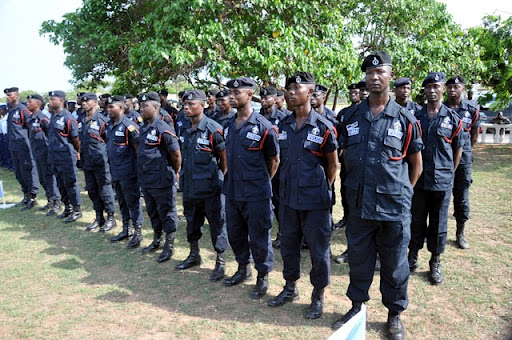The recent spate of suicides among police officers in Ghana has cast a dark shadow over the Ghana Police Service, bringing to the fore critical issues about the mental health and well-being of law enforcement personnel.
One of the most heart-wrenching cases involved a female police officer in Mamponteng, Ashanti Region, who tragically took her own life. Her story is one of personal pain and systemic failure: after discovering her husband’s infidelity and enduring his taunts about her infertility, she felt driven to a tragic decision.
This incident, while personal, reflects broader systemic problems within the Ghana Police Service that go far beyond individual circumstances. It highlights not just the challenges of marital and personal strife faced by officers but also the inadequacies in the support structures that are meant to safeguard their mental health.
The State of Mental Health Support in the Police Service
The Ghana Police Service has been grappling with a high incidence of suicides among its ranks, a troubling trend that affects both junior and senior officers alike. In response, the Police Administration established the Policing Counselling Unit (PCU) to provide psychological services and support to officers and their dependents. This unit aims to address mental health concerns, offering interventions that include counselling and psychological evaluations, particularly for those exhibiting distressing behaviour.
However, the establishment of the PCU, though a step in the right direction, raises questions about the broader conditions of service within the Ghana Police Service. Are these interventions sufficient to tackle the deeply rooted issues that plague the force? The answer, according to many observers, is a resounding no. The PCU, while essential, is reactive rather than proactive, often stepping in only after a crisis has already developed.
Conditions of Service: An Overlooked Crisis
The conditions under which Ghanaian police officers work are another significant factor contributing to the mental health crisis within the service. Many officers endure long hours, high stress, and limited resources, all while facing the constant threat of danger. Furthermore, the remuneration and benefits often do not match the risks and demands of the job, leading to frustration and disillusionment among the ranks. These challenges are exacerbated by a lack of adequate mental health resources and the stigma associated with seeking help.

Officers frequently face intense pressure both on and off the job, including societal expectations and personal issues such as family conflicts and financial burdens. The stigma surrounding mental health in the force often discourages officers from seeking help, further compounding their struggles. This stigma, combined with a lack of comprehensive mental health support, creates a perfect storm of conditions that can lead to tragic outcomes like the recent suicides.
Broader Societal Implications
The rising suicides within the police force also reflect larger societal issues in Ghana, including economic hardship, social stressors, and a general lack of mental health awareness and support. Ghana, like many other countries, has been grappling with economic challenges, including rising inflation, unemployment, and socio-economic disparities. These factors contribute to a national environment of stress and uncertainty, which inevitably spills over into the lives of those tasked with maintaining law and order.
For the police officers who are on the front line of these societal pressures, the burden can be overwhelming. The recent suicides are not just a police issue; they are a reflection of a national crisis in mental health, service conditions, and societal well-being. This crisis is compounded by the lack of a comprehensive national strategy to address mental health, not just in the police force but across all sectors of society.
The Need for a Comprehensive Approach
Addressing the issue of police suicides requires a multifaceted approach that goes beyond the establishment of counseling units. It necessitates a thorough evaluation and overhaul of the conditions of service within the Ghana Police Service, including improvements in pay, benefits, and working conditions. Furthermore, there must be a concerted effort to destigmatize mental health within the force, encouraging officers to seek help without fear of judgment or reprisal.
Additionally, broader societal measures are needed to improve the overall mental health landscape in Ghana. This includes increasing public awareness about mental health issues, expanding access to mental health services, and integrating mental health support into all aspects of public service.
Conclusion
The recent suicides among Ghana’s police officers serve as a tragic reminder of the urgent need to address mental health issues within the force and beyond. They highlight the deep-seated challenges faced by law enforcement personnel and underscore the need for systemic changes that prioritise the well-being of those who serve. As a nation, Ghana must confront these issues head-on, with compassion, commitment, and a comprehensive approach that addresses both the symptoms and root causes of this crisis.

